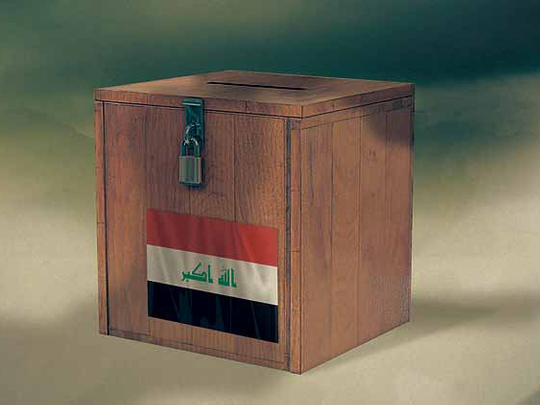
For those who don't remember, Iraq was a mess three years ago, with violence and chaos a feature of daily life, all of which prompted then president George W. Bush to shift gears by sending in more US troops, buying off insurgents, and enjoining parliamentarians, as engaged Iraqi patriots, against the embrace of a parochial posture in the political process.
Fast-forward to 2010, and you see that, on one level, the new strategy worked. But guess what? Iraq is still a mess. The mess is different in kind, but the same in degree. In a nutshell, the insurgency may be gasping for breath, and thus the mayhem it had unleashed is dramatically diminished, but now we have squabbling politicians stoking a deadly brew of Sunni-Shiite tensions that is sure to impede, if not totally block, reform in an Iraq that needs to avoid becoming a nation splintered along ethnic and sectarian lines.
What is at issue is how, on the eve of the March 7 elections, the Shiite-led government of Nouri Al Maliki has arbitrarily blacklisted over 500 Sunni candidates, preumably because of past ties to the Baath Party, as if it is not common knowledge that countless Iraqis — literally millions — joined the group not out of ideologiical conviction but simply out of the need to secure a job in the public sector, whether as teachers or lawyers, mailmen or bank clerks. In a rigid one-party state, joining the ruling party is essential.
So why reopen sectarian wounds by holding elections that aspiring Sunni politicians are prevented from joining, especially on a single ticket uniting Sunnis and Shiites in a secular alliance, which is clearly the best chance the country has to heal its sectarian dichotomies, and to establish, finally, a united, stable, free and democratic Iraq? For an answer to that one, you might have to turn to the so-called Accountability and Justice Commission, which initially came up with the bizarre blacklist.
So what, pray tell, is this commission? It doesn't take a lot of digging by a researcher to discover that this body, with its quaint name, is neither accountable, nor just, nor a commission. It is rather a hodge-podge headed by the discredited Ahmad Chalabi, whose shifty ways soon became known to Americans after 2003. That is why Washington, aware that such an edict by such a commission represented a danger to the future of Iraq, last month dispatched Vice President Joe Biden to Baghdad to prevail upon Iraqi leaders to resolve the impasse by reaching a compromise.
Thus, about two weeks ago, a seven-judge appelate committee overturned the commission's decision. The ruling, however, came with a proviso: though the banned Sunni candidates may participate in the election, their "cases" will be revisited and reviewed after the voting has taken place.
The democratic process does not come easy to a country that has never known it, a country with a long history of dictatorial rule. Rome was not built in a day, true, and Iraq needs time, a long time indeed, to elect a truly transparent and representative government responsive to the idea that a democratic society is one built around laws and institutions, checks and balances, accountability, a society where freedom to vote for candidates of one's choice is enshrined in one's constitution.
But seven years after American forces entered Iraq, there are no signs that Iraqis will enjoy, any time soon, the fruits of that freedom of expression — at the ballot box or on the op-ed page.
Media restrictions
This month, Al Maliki's government imposed restrictive rules on the print and broadcast media that critics denounced vehemently, including The Committee to Protect Journalists (CPJ) in New York, as being a tool similar to that used by authoritarian regimes to censor the news. The rules would bar coverage that the government describes as "incitement to violence" or as "insulting to the head of state" — on pain of incarceration. Joel Simon, Executive Director of CPJ said in a press release on February 4: "[These] regulations suggest either a lack of understanding of the news media's role in a democratic society, or a deliberate attempt to suppress information and stifle opposing views. Either way, the rules should be rescinded immediately so that the media can do [their] job free of government intimidation". (The good news is that Ebrahim Jasem, an Iraqi photojournalist, was released from prison last Tuesday after being held, without charge, for 17 months.)
Iraq, then, remains a mess. Its leaders have yet to grasp where individual existence and national being anchor their meaning in a free, open, zestful, and thus stable, society. What is the point, in other words, of holding elections when the outcome of these elections is known in advance, when voters can't cast a ballot for their chosen candidate?
Were I an Iraqi Sunni, I wouldn't bother going to a polling booth to cast a ballot that I know will not be worth anything after I had cast it.
- Fawaz Turki is a journalist, lecturer and author based in Washington. He is the author of 'The Disinherited: Journal of a Palestinian Exile'.












